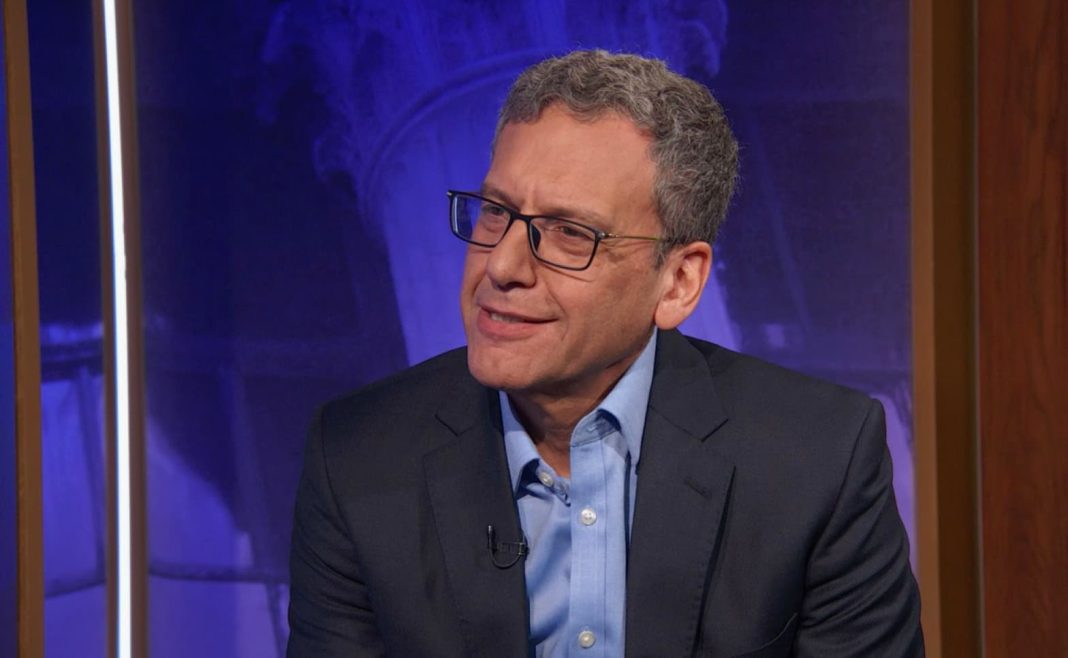In a significant shake-up within the pay-TV landscape, EchoStar has announced the sale of its Dish TV provider and the digital business Sling to competitor DirecTV for a nominal fee of just $1. This merger, poised to close in the fourth quarter of 2025, marks a pivotal moment for both companies, which together will serve approximately 20 million customers. However, this deal comes with a hefty price tag, as DirecTV will assume around $9.75 billion in debt associated with Dish, making this transaction a complex yet strategic maneuver in an increasingly competitive industry.
Hamid Akhavan, CEO of EchoStar, articulated the rationale behind this merger during a recent interview, emphasizing the necessity of scale in today’s market. “This was the right time to bring the companies together so we could create a company that ultimately had enough ability to negotiate better deals with the programmers and bring smaller packages to the market,” he stated. Akhavan’s vision reflects a broader trend among consumers who are increasingly seeking flexible, bite-sized packages tailored to their viewing habits, as opposed to the traditional, all-encompassing bundles.
The pay-TV sector has been facing a steady decline, largely due to the disruptive rise of streaming services that cater to the evolving preferences of viewers. As Akhavan pointed out, distribution companies like Dish and DirecTV have struggled to keep pace with newer technologies and broader reach. The merger is seen as a necessary step for EchoStar to concentrate its resources on its core services, particularly in light of recent financial pressures. The company’s cash reserves stood at a mere $521 million as of June 30, juxtaposed against an impending $2 billion debt payment. This precarious financial situation has led to speculation about EchoStar’s viability, with bankruptcy looming as a very real possibility.
The backdrop to this merger is a long history of speculation regarding a potential union between Dish and DirecTV. In 2002, EchoStar nearly acquired DirecTV from General Motors’ Hughes Electronics, only to see the deal scuttled by the Federal Communications Commission. Fast forward to today, and the industry landscape has shifted dramatically, with many traditional satellite TV providers struggling to maintain their customer bases as viewers flock to streaming platforms.
In a related development, AT&T has also made headlines by announcing the sale of its 70% stake in DirecTV to private equity firm TPG for $7.9 billion. This decision follows AT&T’s partial divestiture of its DirecTV stake in 2021, when the company sold 30% for $16.2 billion. Originally, AT&T acquired DirecTV in 2014 for an astounding $48.5 billion, underscoring the volatility and rapid changes in the valuation of media assets over the years.
Despite the current turbulence, Akhavan remains optimistic about EchoStar’s future. He noted that while the company won’t be making any significant moves in the immediate aftermath of this merger, it has secured enough capital to ensure a stable trajectory ahead. “We are as competitive as anybody else in terms of our offerings, whether it be price, whether it be coverage, whether it be quality,” he asserted, highlighting EchoStar’s commitment to enhancing customer acquisition.
This merger not only reshapes the competitive dynamics of the pay-TV industry but also reflects a broader trend towards consolidation as companies seek to leverage scale to compete more effectively against the burgeoning streaming sector. With consumer preferences rapidly evolving, the ability to offer tailored, flexible viewing options will likely determine the future success of EchoStar and DirecTV in this challenging environment.
As the dust settles from this monumental deal, industry experts and consumers alike will be watching closely to see how the combined entity navigates the shifting landscape and whether it can reclaim its relevance in an era dominated by streaming giants. The choices made in the coming months will be critical as both companies strive to redefine their identities and capture the attention of an increasingly discerning audience.

